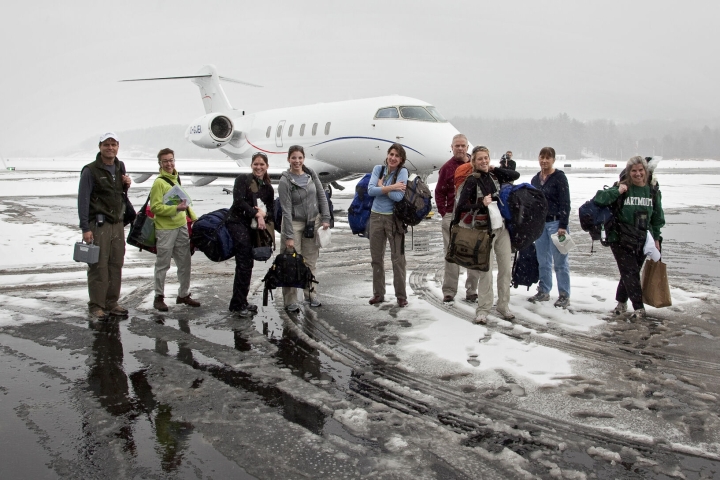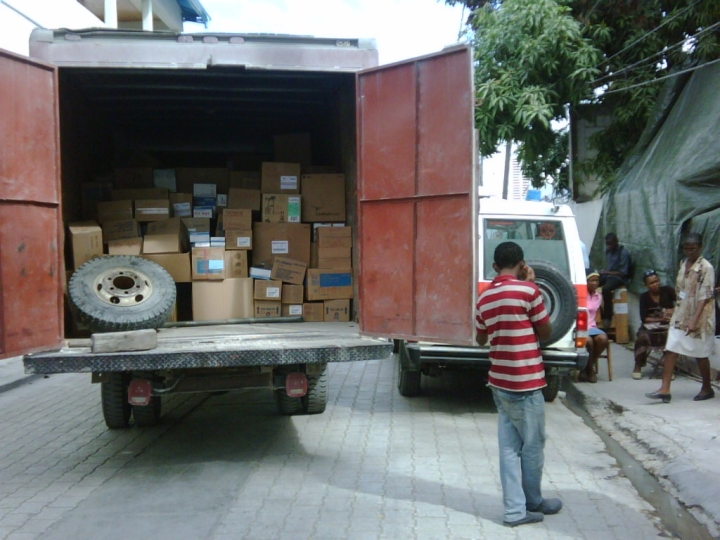The week was supposed to be one of professional growth and camaraderie at the Society of Critical Care Medicine’s annual congress in Miami.
On Jan. 12, 2010, everything changed when a magnitude 7.0 earthquake struck Haiti, just 700 miles away. The devastating quake killed tens of thousands of people and left more than a million homeless.
Within a week I found myself leading a team into the chaotic aftermath.
Fifteen years later, the memories remain vivid: the overwhelming need, the desperation, the destruction, and yet also moments of success and even joy amidst despair.
Then-Dartmouth President Jim Kim, in contact with his Partners in Health co-founder Paul Farmer in Haiti, reached out to the Dartmouth community for support. Many doubted the feasibility and safety of responding to such a monumental disaster.
Yet, in a matter of days, students, parents, alumni, disaster experts, health care providers, and other stakeholders had devised a plan to send two trauma and critical care teams to Haiti in support of Partners in Health.
Two days after Dartmouth’s trauma team deployed to the small village of Hinche, I led the second group—a critical care team of seven nurses and myself—to the capital, Port-au-Prince.
As we approached the city, the extent of the devastation became clear. Makeshift tents covered open spaces, and the air was thick with dust, noise, and desperation. United Nations and U.S. Army soldiers provided security in the chaos.
Arriving at University Hospital after a daylong drive from the Dominican Republic, the nurses quickly changed into scrubs, met the acting hospital leaders from International Medical Corps, and went to work. On the hospital grounds we faced a scene of collapsed buildings, crowded courtyards, and bodies awaiting removal. Temperatures soared above 100 degrees, amplifying the odors and fatigue.
Our initial attempt to establish an ICU in a fixed building was thwarted by aftershocks, forcing patients and families into open-air spaces. We then relocated under a tent near the operating theater, close to what had a week earlier been the hospital morgue.

The patient volume was staggering. Most cases involved severe injuries awaiting surgery or postoperative care, including amputations. The care the nurses provided was nothing short of extraordinary. Communication barriers limited conversations, but through touch, smiles, and gestures, we connected with patients and families. Pain medications were scarce, and dressing changes often relied on family members for emotional support through prayer and song.
Amidst the suffering, we witnessed moments of profound humanity and resilience. Families shared resources and supported one another, feeding, bathing, toileting, and exercising family members. Haitian nurses, despite personal losses, returned to the hospital and thrived under the guidance of our team. Together, we improvised solutions, performing bedside procedures and innovating care with limited resources.
At the end of each exhausting day, we found solace in a home provided by Partners in Health. There, we had access to a flushing toilet, cool showers, and meals supplemented by military rations. Evening conversations and journaling offered opportunities to decompress and prepare for the challenges ahead.
Reflecting on those 11 days, I am struck by the lessons it taught me and our team. Practicing critical care under such extreme conditions required adaptability, ingenuity, and teamwork. The bonds formed within our team were forged in adversity and remain unbreakable.
Though I have reflected mostly on this personal story, the greater narrative of the event lies in how the broader Dartmouth community played such a pivotal role in our mission and those of the other six Dartmouth teams that eventually deployed.
Student veterans lent their military expertise, Dartmouth’s New England Center for Emergency Preparedness coordinated logistics, and parents offered corporate aircraft for transportation. Dartmouth Hitchcock Medical Center, the VA, and regional health care organizations provided supplies and staff. This collective effort demonstrated the power of collaboration and community in responding to crises.
It’s through the lens of our team that we saw Dartmouth shine. Later, Haitian patients came to DHMC for care, students came to visit, virtual medical rounds developed, Haitian art and music became popularized, and the Haitian soccer team even came to play.
With so many competing priorities, political opinions, fiscal constraints, and social agendas, it’s hard to believe what happened 15 years ago could again mobilize this community for a such a crisis. Yet I believe if asked, Dartmouth could similarly respond again with its talent, innovation, and resources to help a population or region in need.
Professor of Medicine James Geiling is an attending intensivist with the VA Medical Center in White River Junction, Vt., and TeleICU physician with Dartmouth Health. He received a master’s of public health degree from the Geisel School of Medicine in 2014.
***
Vox Populi is the Dartmouth News opinion page for commentary written by members of the Dartmouth community that is intended to inform and enrich public conversation.
